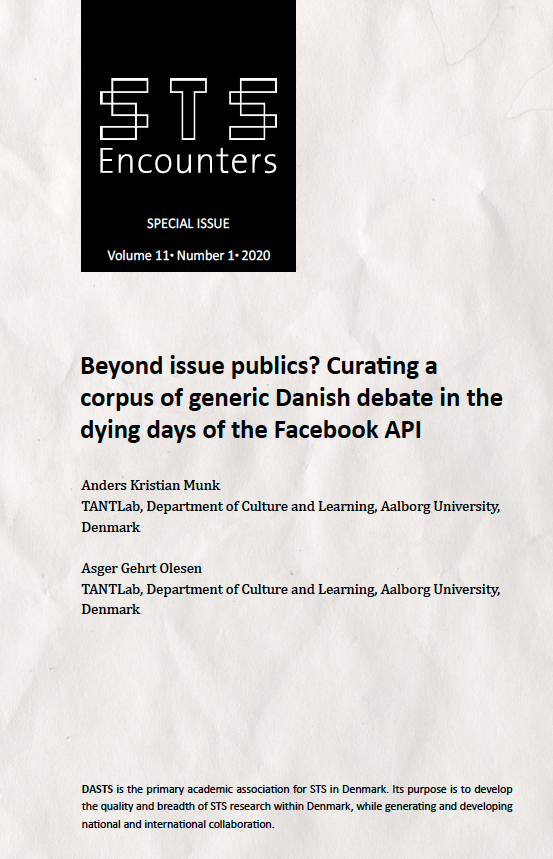Beyond issue publics? Curating a corpus of generic Danish debate in the dying days of the Facebook API
DOI:
https://doi.org/10.7146/stse.v11i1.135275Nøgleord:
Digital methods, Issue publics, Controversy mapping, Facebook, API-based researchResumé
This article recounts and reflects on our experience of interacting with Facebook’s data infrastructure during some pivotal months of change in early 2018. We show how the technical affordances of the Application Programming Interface (API) have critical consequences for the practice of digital controversy mapping and hence argue for the necessity of engaging with changes to these affordances: a consequential data moment for digital STS. The tools that controversy mappers have developed over the past 20 years have focused predominantly on the construction and curation of issue-specific datasets. This is partly justified in the theoretical positions underpinning actor-network theoretical controversy analysis, but it is also technically more convenient than demo- or geographical delimitations. Through the example of mapping the Danish HPV debate, we demonstrate the necessity of being able to challenge the issue-specific approach, and we show how this involves direct engagement with the API. We thus provide an inside perspective from a research practice that relies heavily on data from digital platforms and discuss how the closure of public access to API endpoints severely limits this kind of critical engagement.

Downloads
Publiceret
Citation/Eksport
Nummer
Sektion
Licens

Dette værk er under følgende licens Creative Commons Navngivelse – Ikke-kommerciel – Del på samme vilkår (ShareAlike) (by-nc-sa).
Starting with volume 15, articles published in STS Encounters are licensed under Attribution-NonCommercial-ShareAlike 4.0 International (CC BY-NC-SA 4.0). The editorial board may accept other Creative Commons licenses for individual articles, if required by funding bodies e.g. the European Research Council. Previous articles are not licensed under Creative Commons. In these volumes, all rights are reserved to the authors of the articles respectively.




